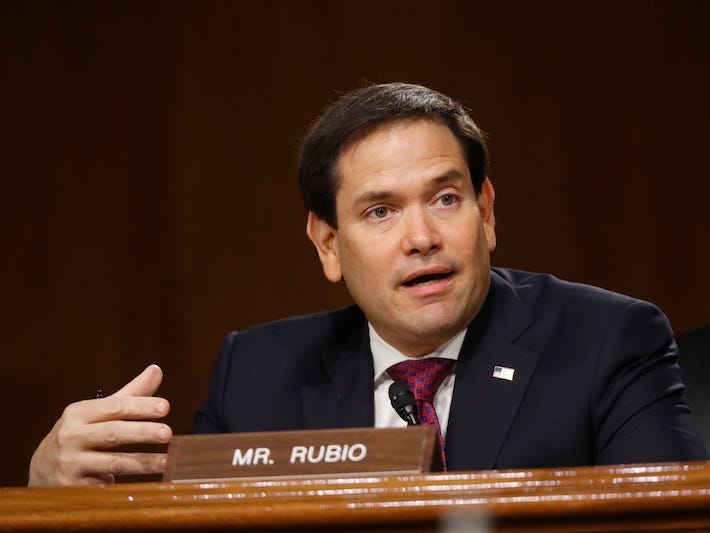
Getty pool
- Sen. Marco Rubio reintroduced a bill to defer student-loan payments for terrorist attack survivors.
- He first introduced the bill in 2016 following the Pulse nightclub shooting in Orlando.
- Advocates said his bill doesn't do enough to address the $1.7 trillion student debt crisis.
- See more stories on Insider's business page.
With the pause on student-loan payments during the pandemic set to lift in three months, Florida Sen. Marco Rubio reintroduced a bill to defer those payments an extra year – but only if the borrower survived a terrorist attack.
Last week, Rubio reintroduced the Terrorism Survivors Student Loan Deferment Act, which would allow survivors of terrorist attacks to receive automatic deferments of their federal student-loan payments. He first introduced this legislation in 2016, following the Pulse nightclub shooting in Orlando, to help survivors of that shooting.
"We should do everything in our power to help those who survive a terrorist attack to get their life back on track," Rubio said in a statement. "While in the aftermath of a terrorist attack, survivors like those of the horrific Pulse nightclub shooting, can be eligible for some relief, existing law does not automatically recognize these types of extraordinary circumstances. Giving survivors some time to regroup by delaying their student loan payments is just commonsense."
According to a press release, Rubio's legislation would:
- Provide a one-year pause on student loan payments for survivors;
- Direct the Education Secretary to establish anti-fraud protections;
- And designate the federal agency tasked with investigating the terrorist attack as responsible for identifying affected victims.
Any survivor with federal loans would be eligible for this payment deferral.
Advocates for student-loan borrowers criticized Rubio for not going further in seeking to address the $1.7 trillion student-debt crisis. Student Debt Crisis, an organization that pushes for student debt cancellation, wrote on Twitter last week that Rubio's bill "is not it" and that Americans need a serious solution to the student debt crisis.
This is not the first legislation Rubio has introduced to address loan forgiveness in some capacity, though. Insider reported in April that Rubio, along with New Hampshire Senator Maggie Hassan, introduced a bill to make it easier for service members to get loan forgiveness through the Public Service Loan Forgiveness (PSLF) program, where borrowers can enroll in income-based repayment plans that could lead to loan forgiveness after 10 years.
PSLF still has a 98% denial rate, so that legislation would likely be ineffective until the Education Department implements reforms to the program.
Rubio's office did not immediately respond to Insider's request for comment.
Rubio's legislation comes as Democratic lawmakers are pushing for President Joe Biden to cancel $50,000 in student debt per borrower - something they believe will be much more impactful for borrowers than cancelling debt only for specific groups of people, like terrorist attack survivors.
At an event hosted by Student Debt Crisis, Sen. Majority Leader Chuck Schumer said he'd met with Biden on the issue and told him they'd be unrelenting in their push to get student debt forgiven.
"We said, 'We're going to keep at it until you do this,' and to his [Biden's] credit, he said, 'Go ahead.' He's talked about 10 thousand - that's not enough," Schumer said during the event. "We're keeping the pressure on him."